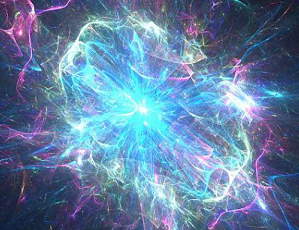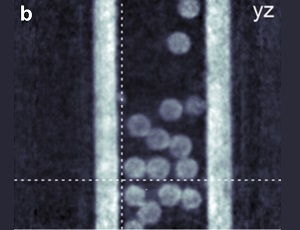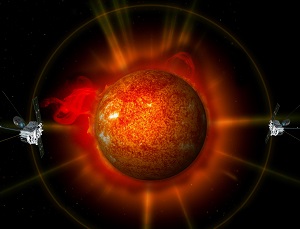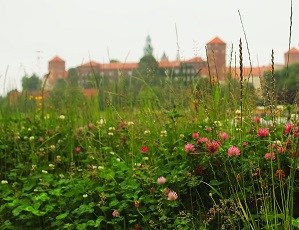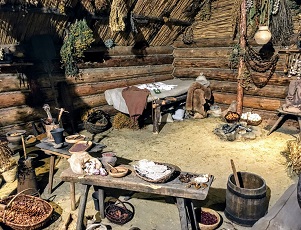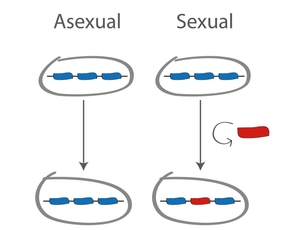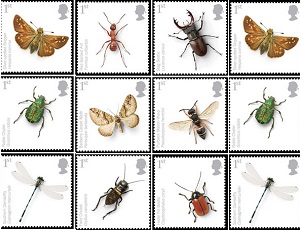 Widok zawartości stron
Widok zawartości stron
News
 Widok zawartości stron
Widok zawartości stron
 Widok zawartości stron
Widok zawartości stron
 Widok zawartości stron
Widok zawartości stron
Wyniki sortowane według etykiety: nauka
News
Quark and neutron stars: how do we tell them apart?
25.09.2020
Matter found in the densest stars in the Universe – initially known as radio pulsars – poses a frustrating problem for astrophysicists. Theoretical projections allow for two possibilities: they are either neutron stars or quark stars (also known as strange stars). To tell these two types apart through observation was previously thought impossible. However, physicists from the Jagiellonian University and Cracow University of Technology have recently discovered new features of quark stars that may help discern them from neutron stars.
więcej o Quark and neutron stars: how do we tell them apart?
A whole new level of X-ray imaging
10.09.2020
To study microscopic samples, scientists often employ computer tomography, which relies on X-rays and polycapillary optics. However, this can sometimes cause problems: to create a 3D model of an object, one has to rotate it and scan its surface. Two researchers from the JU Institute of Physics and the JU SOLARIS synchrotron, Katarzyna M. Sowa and Prof. Paweł Korecki, aim to facilitate this process by devising an unconventional imaging technique.
więcej o A whole new level of X-ray imaging
Space weather and its effects on Earth
04.08.2020
Space weather on Earth is chiefly influenced by magnetic storms and emissions of energy particles, in both cases caused by enhanced fluxes of protons and ions. these accelerated plasmas are called solar energetic particles (SEPs). They can be caused by two phenomena: impulsive SEP events caused by magnetic reconnection manifested as solar flares and gradual SEP events accelerated by strong shocks associated with coronal mass ejections (CMEs).
więcej o Space weather and its effects on Earth
To mow or not to mow?
31.07.2020
The problem of climate change is no longer limited to complex scientific models and researchers’ predictions. It is reflected in a number of phenomena which are beginning to have significant impact on our everyday lives. We are facing such dangers as the creeping loss of biodiversity in our immediate environment or the catastrophic draughts caused by rising air temperatures and changes in rainfall patterns. These threats are global, but countermeasures against them can also be undertaken locally. Can changing the approach towards mowing lawns help the environment, and, if so, is it a feasible solution? Dr Joanna Kajzer-Bonk and Dr Justyna Kierat from the JU Faculty of Biology shed more light on this issue.
więcej o To mow or not to mow?
What did our ancestors eat? Researchers investigate the diets of the past
21.07.2020
We now know more about the diet of our ancestors living in the area now known as Poland as far back as the Neolithic, Bronze Age, and Early Iron Age. An analysis of carbon and nitrogen isotopes found in bones and remains of cultivated plants. Such research projects are carried out by various research centres around the world, including the Jagiellonian University. In the article below, Dr hab. Marek Nowak, Prof. UJ from the JU Institute of Archaeology shares some of his team’s findings.
więcej o What did our ancestors eat? Researchers investigate the diets of the past
Evolutionary purpose of bacterial sex
10.06.2020
If there is one thing we learned from over 150 years of studies on the evolution of sex it is that more sex is not always better. So why some bacteria exchange genetic material more frequently than others? Read the article by Dr Rafał Mostowy from the JU Małopolska Centre of Biotechnology Microbial Genomics Mostowy Lab to learn more about the reproductive mechanisms in bacteria and what they mean for evolutionary biology in general.
więcej o Evolutionary purpose of bacterial sex
Dropping like flies
18.05.2020
About 66 million years ago, the age of dinosaurs came to an end when a massive asteroid hit the Earth. An enormous shockwave and raging wildfires caused thick clouds of smoke and dust to obscure the sun, changing the global climate and killing off around three quarters of all existing life. We are aware of at least several comparable or possibly even greater mass extinction events that happened in the history of our planet. Unfortunately, it seems that we’re about to experience another one. Dr Justyna Kierat and Dr Piotr Łukasik from the JU Faculty of Biology have taken a closer look at the chilling issue of mass animal die offs.
więcej o Dropping like flies

